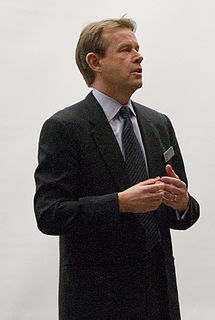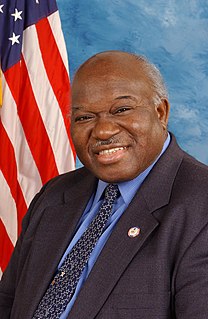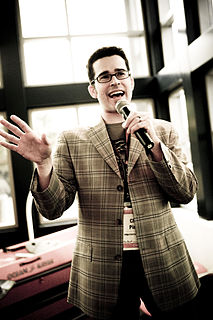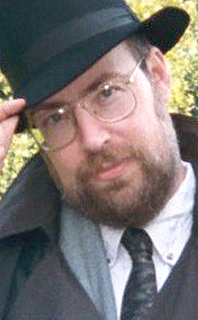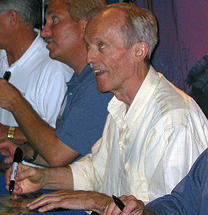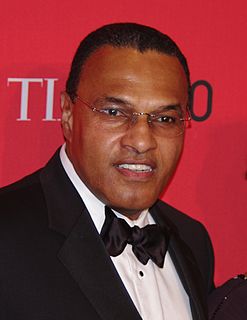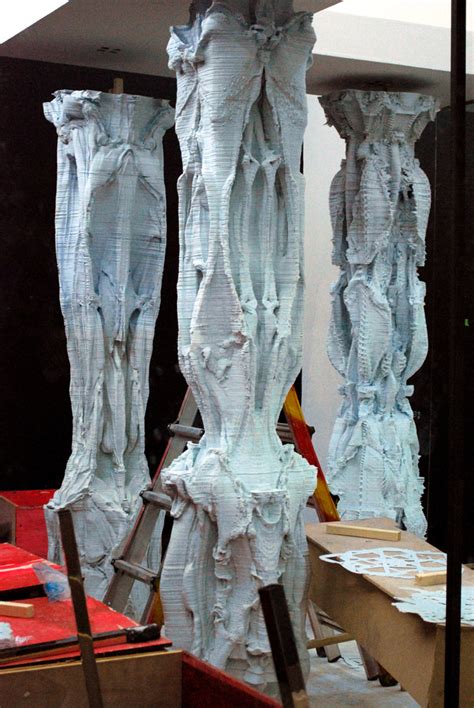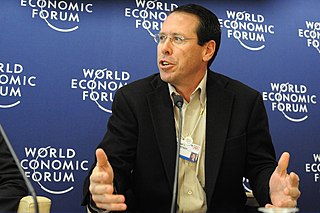Top 1200 Computer Software Quotes & Sayings - Page 7
Explore popular Computer Software quotes.
Last updated on April 23, 2025.
The most revolutionary aspect of technology is its mobility. Anybody can learn it. It jumps easily over barriers of race and language. ... The new technology of microchips and computer software is learned much faster than the old technology of coal and iron. It took three generations of misery for the older industrial countries to master the technology of coal and iron. The new industrial countries of East Asia, South Korea, and Singapore and Taiwan, mastered the new technology and made the jump from poverty to wealth in a single generation.
At one time, I hated the iPhone - but that was only before I used one for the first time. Now, it would be difficult for me to make the switch to any other platform. I've spent a fair amount of money on apps that continue to ride with me as I upgrade my iS devices. The iPhone certainly has its share of flaws and shortcomings, but having spent a great deal of time with other devices that claim to be "killer" continue to fall short. The industry needs competition, but I just need my mobile communications computer to work with a healthy array of software.
The personal computer was a disruptive innovation relative to the mainframe because it enabled even a poor fool like me to have a computer and use it, and it was enabled by the development of the micro processor. The micro processor made it so simple to design and build a computer that IB could throw in together in a garage. And so, you have that simplifying technology as a part of every disruptive innovation. It then becomes an innovation when the technology is embedded in a different business model that can take the simplified solution to the market in a cost-effective way.
What would the world be like if you had to develop a power yourself before you could use it? Just as a silly example: How would the comment section on YouTube change if, to use it, you had to have the schooling necessary to have a basic understanding of how computers and the internet work? More seriously, would anyone smart enough to know how to design and build a tank, or a laser guided anti-aircraft missile, or a computer and video editing software be stupid enough to join ISIS? In fact, if such knowledge was required—would it even be possible for there to be standing armies?
There's a strong distinction to be made between dry code smart contacts and wet code's physical law. So law is based on our minds, our wetware - it's based on analogy. The law is more flexible; software is more rigid. Various laws tend to be batched in jurisdictional silos. Software tends to be independent.
We also exchange oil for software technology. Uruguay is one of the biggest producers of software. We are breaking with the neoliberal model. We do not believe in free trade. We believe in fair trade and exchange, not competition but cooperation. I'm not giving away oil for free. Just using oil, first to benefit our people, to relieve poverty.
Today, your cell phone has more computer power than all of NASA back in 1969, when it placed two astronauts on the moon. Video games, which consume enormous amounts of computer power to simulate 3-D situations, use more computer power than mainframe computers of the previous decade. The Sony PlayStation of today, which costs $300, has the power of a military supercomputer of 1997, which cost millions of dollars.
First, we want to establish the idea that a computer language is not just a way of getting a computer to perform operations but rather that it is a novel formal medium for expressing ideas about methodology. Thus, programs must be written for people to read, and only incidentally for machines to execute.
Composing computer programs to solve scientific problems is like writing poetry. You must choose every word with care and link it with the other words in perfect syntax. There is no place for verbosity or carelessness. To become fluent in a computer lnaguage demands almost the antithesis of modern loose thinking. It requires many interactive sessions, the hands-on use of the device. You do not learn a foreign language from a book, rather you have to live in the country for year to let the langauge become an automatic part of you, and the same is true for computer languages.
Computer security can simply be protecting your equipment and files from disgruntled employees, spies, and anything that goes bump in the night, but there is much more. Computer security helps ensure that your computers, networks, and peripherals work as expected all the time, and that your data is safe in the event of hard disk crash or a power failure resulting from an electrical storm. Computer security also makes sure no damage is done to your data and that no one is able to read it unless you want them to.
It all depends on what I'm working on and if there is a deadline involved. Anything that's headed toward a magazine or newspaper is hacked out on the computer; that's a matter of efficiency. I write longer pieces of prose on a typewriter because the act of retyping it for the computer is a useful tactic for revision. Poems tend to be written longhand.
In science, the whole system builds on people looking at other people's results and building on top of them. In witchcraft, somebody had a small secret and guarded it - but never allowed others to really understand it and build on it. Traditional software is like witchcraft. In history, witchcraft just died out. The same will happen in software. When problems get serious enough, you can't have one person or one company guarding their secrets. You have to have everybody share in the knowledge.
The entire Internet, as well as the types of devices represented by the desktop computer, the laptop computer, the iPhone, the iPod, and the iPad, are a continuing inescapable embarrassment to science fiction, and an object lesson in the fallibility of genre writers and their vaunted predictive abilities.
Artificial intelligence uses a complex set of rules - algorithms - to get to a conclusion. A computer has to calculate its way through all those rules, and that takes a lot of processing. So AI works best when a small computer is using it on a small problem - your car's anti-lock brakes are based on AI. Or you need to use a giant computer on a big problem - like IBM using a room-size machine to compete against humans on Jeopardy in 2011.

